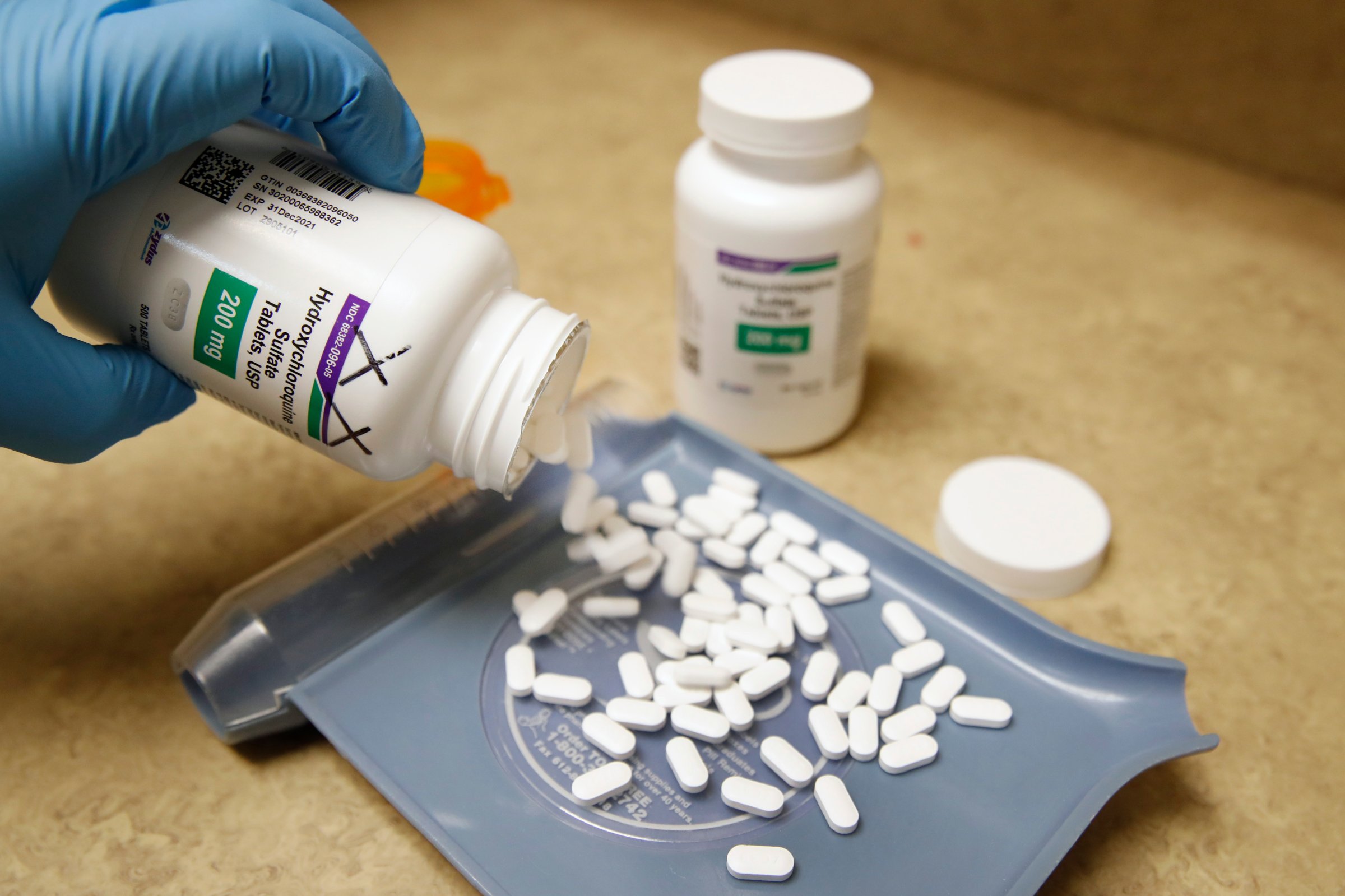
The U.S. Food and Drug Administration (FDA) announced today that it is revoking the emergency use authorization for hydroxychloroquine and chloroquine, citing a lack of evidence that these drugs are effective for COVID-19.
Early on in the pandemic, doctors scrambling to find a way to treat the disease widely prescribed hydroxychloroquine to their sickest patients, based on thin evidence from a handful of relatively weak studies. However, recent research has made it increasingly clear that the drug is likely ineffective against the disease, and that it carries a risk of significant side effects, including heart problems.
The chief scientist for the FDA, Denise M. Hinton, announced the decision in a letter to the Biomedical Advanced Research and Development Authority (BARDA) on Monday. “Today’s request to revoke is based on new information, including clinical trial data results, that have led BARDA to conclude that this drug may not be effective to treat COVID-19,” she wrote, adding that it is “no longer reasonable” to believe that the drug combination’s benefits outweigh the potential side effects.
Hydroxychloroquine is a slightly different version of chloroquine, a drug discovered to fight malaria decades ago. Scientists developed hydroxychloroquine as a replacement for malaria treatment, with fewer side effects; today, in the U.S. it’s mainly prescribed to treat the inflammation related to autoimmune disorders like rheumatoid arthritis and lupus.
As the U.S. pandemic surged in March, President Donald Trump championed hydroxychloroquine as a potential COVID-19 treatment, calling it a possible “game-changer.” Trump encouraged others to take the drug, and later claimed to have undergone a two-week regimen of hydroxychloroquine himself in an effort to ward off the disease. Medical experts widely criticized President Trump for promoting a potentially dangerous drug before its benefits were proven, and warned of the possible risks of the public self-medicating.
The FDA said in a statement on Monday that the FDA regularly reviews drugs under an emergency use authorization, and has reviewed new information, including a large clinical trial of hospitalized patients that showed that the drug didn’t appear to help people get better faster, or reduce the risk of mortality.
“While additional clinical trials continue to evaluate the potential benefit of these drugs in treating or preventing COVID-19, we determined the emergency use authorization was no longer appropriate. This action was taken following a rigorous assessment by scientists in our Center for Drug Evaluation and Research,” Dr. Patrizia Cavazzoni, the acting director of the FDA’s Center for Drug Evaluation, said in the statement.
More Must-Reads from TIME
- Cybersecurity Experts Are Sounding the Alarm on DOGE
- Meet the 2025 Women of the Year
- The Harsh Truth About Disability Inclusion
- Why Do More Young Adults Have Cancer?
- Colman Domingo Leads With Radical Love
- How to Get Better at Doing Things Alone
- Michelle Zauner Stares Down the Darkness
Contact us at letters@time.com